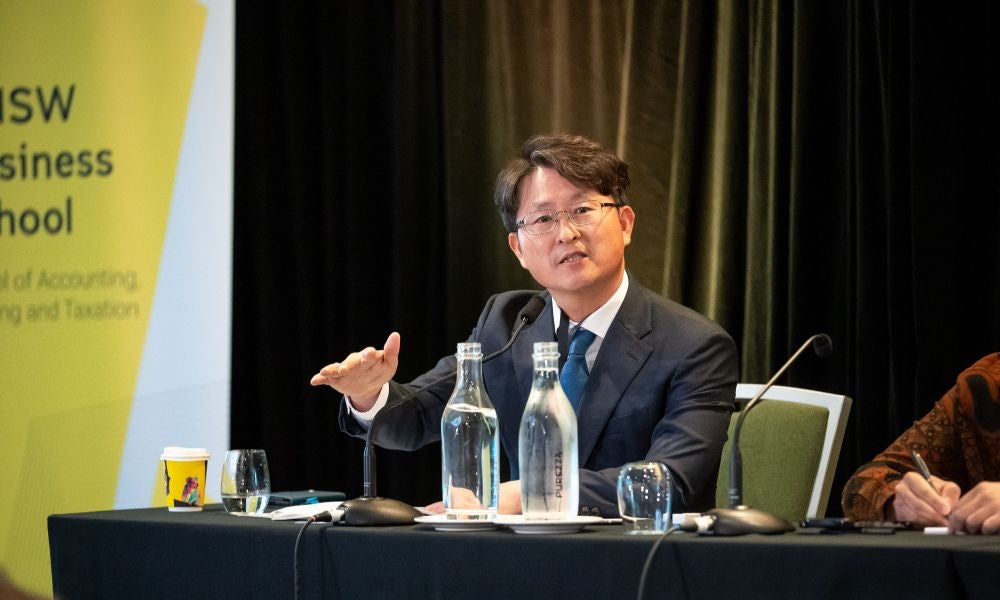Why Asia-Pacific countries are embracing digital service taxes
As digitalisation reshapes economies across Asia and the Pacific, policymakers are working to modernise tax systems that were never built for an online world
The rise of e-commerce, digital services, and cross-border platforms has put pressure on traditional frameworks and sparked urgent calls for reform across Asia-Pacific (APAC) countries. With competing national interests, uneven implementation, and geopolitical shifts, the road to a fairer, more consistent approach to taxing the digital economy remains complex.
At the 16th International ATAX Tax Administration Conference hosted by UNSW Business School, Byungsik Jung, Deputy Dean of the Asian Development Bank Institute (ADBI), said APAC countries must deepen regional engagement to ensure their voices are heard in global negotiations – particularly as new frameworks are being debated at both the OECD and the United Nations.

While digitalisation is rewriting the rules, he said tax systems are playing catch-up. “This session was originally designed to provide very recent information to developing member countries in the Asia-Pacific,” Dr Jung said. “Through my experience, I realised that there was less participation from the Asia-Pacific region regarding these negotiations – not only in the OECD, but also the UN.”
Geopolitics and digital tax: what’s at stake for the Asia-Pacific?
Countries across APAC – from Indonesia and Vietnam to Singapore and Japan – are at varying stages of tax reform. Some are progressing with the implementation of the OECD’s two-pillar solution, which aims to address the tax challenges of digitalisation and ensure large multinational enterprises pay a fair tax. Dr Jung also noted that many countries in the region are already implementing parts of Pillar Two, including the Global Anti-Base Erosion (GloBE) rules.
The 2025 International ATAX Conference, hosted by UNSW Business School
Many countries' different approaches come down to recent geopolitical developments, which have added further uncertainty. Since early 2025, the Trump administration has withdrawn from the UN-led negotiations on international tax cooperation and signalled it would no longer support the OECD’s global minimum tax deal.
On the other hand, Dr Jung mentioned the trend behind the United Nations Framework Convention on International Tax Cooperation, which aims to give developing countries more say in global tax rules. He pointed to the newly established two-thirds majority vote required for decision-making on protocols – a change compared to previous simple majority decision-making rule .
The case for simpler tax models – and continued Asia-Pacific engagement
Dr Jung said there is growing interest among developing countries in simpler alternatives to the OECD’s Pillar One, such as the Digital Services Tax (DST) or the UN’s Article 12B approach.
“Digital Services Tax is based on market revenue – and that’s really attractive for developing countries,” he said. “There are two tools: one is value-added tax on digital transactions, and the other is digital services tax. DST is kind of similar to income tax. And developing countries love it – because it is simple and it can increase their tax revenue.”
Subscribe to BusinessThink for the latest research, analysis and insights from UNSW Business School
He also acknowledged the challenges of DSTs. “Many multinational enterprises are US companies. They are facing double taxation as many countries plan to apply DSTs,” he said.
But despite the growing uncertainty, Dr Jung encouraged APAC countries to stay engaged. “This session is really kind of an introductory session for the developing countries in Asia-Pacific,” he said, “to help them prepare for the negotiations – if they come.”
He concluded by reaffirming ADBI’s ongoing support for countries in the Asia-Pacific: “We will continue these kinds of activities – not only at conferences but also through education and training for developing countries,” he said. “We will contribute to this community in the Asia-Pacific region together.”
